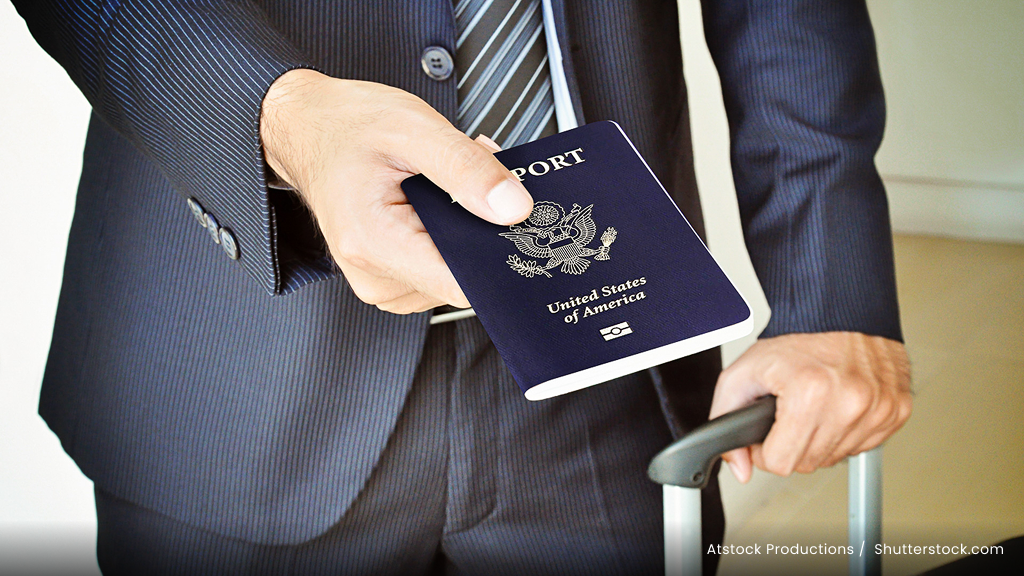How Does Credit Card Travel Insurance Work?

Credit card travel insurance can reimburse you if your trip is derailed by a flight delay, lost luggage or other unexpected hiccup. Many top travel credit cards include this insurance coverage as a benefit, but if you’ve never had a reason to use it, you may not understand how it can protect you.

400+ Credit Cards
Analyzed independently across 50+ data points in 30+ product categories

Reviewed
By a team of credit card experts with an average of 9+ years of experience

Trusted by
More than one million monthly readers seeking unbiased credit card guidance
CardCritics™ editorial team is dedicated to providing unbiased credit card reviews, advice and comprehensive comparisons. Our team of credit card experts uses rigorous data-driven methodologies to evaluate every card feature, fee structure and rewards program. In most instances, our experts are longtime members or holders of the very programs and cards they review, so they have firsthand experience maximizing them. We maintain complete editorial independence — our ratings and recommendations are never influenced by advertiser relationships or affiliate partnerships. You can learn more about our editorial standards, transparent review process and how we make money to understand how we help you make informed financial decisions.
What does credit card travel insurance cover? And what is travel insurance designed to do for you? Here’s an introduction to credit card travel insurance and how it works.
What Is Travel Insurance?
Travel insurance protects you against financial losses if you experience delays, interruptions or other events during a trip, either close to home or abroad. Exactly what’s covered by travel insurance varies by policy, but the goal is to prevent you from taking a financial hit because of something beyond your control.
Credit cards may offer insurance with other travel benefits, such as free checked luggage or airport lounge access. There are different types of travel insurance you can use to protect your trip.
Trip Cancellation/Interruption Insurance
Trip cancellation and interruption insurance reimburses you for prepaid costs that are otherwise non-refundable. For example, if you’re required to put down a deposit on a hotel room or cruise booking before your trip, that could count as a prepaid cost.
This coverage can kick in if you’re forced to cancel your travel plans or your trip is interrupted. Your change of plans must be related to an unforeseen event covered by your policy, such as a natural disaster or a death in the family.
Trip Delay Insurance
Trip delay insurance reimburses you for certain expenses when you’re not able to travel on time for a covered reason.
For example, say that your flight is delayed for 24 hours due to bad weather. Your airline doesn’t offer vouchers for meals or a hotel stay, so you cover those expenses out of pocket. You could file a claim with your travel insurance to get that money back.
Keep in mind that the delay may need to meet certain requirements to be covered. For example, you may need to be delayed by a specific number of hours before your coverage will pay a claim.
Car Rental Insurance
Car rental insurance may be included with a credit card travel insurance policy or offered as a separate card benefit. This insurance covers you if your rental vehicle is damaged or stolen; it can also pay the rental car company for loss of use while the vehicle is being repaired.
One thing to note is that car rental insurance typically does not include liability coverage. You’ll still need to have adequate liability coverage through your regular auto insurance policy or by purchasing insurance from your rental company. That coverage protects you if you get into an accident that causes injury or damage to someone else.
Lost/Delayed Luggage Insurance
Department of Transportation (DOT) rules require airlines to compensate flyers when their bags are damaged, delayed or lost. The maximum compensation for lost luggage on domestic flights is $4,700 per person; for international flights, it’s $1,700 per person.
However, airlines can exclude certain items, which could leave you at risk if your luggage goes missing. Lost luggage insurance can reimburse you if your bags never make it from the airline to their final destination. Your policy may also cover you if your bags are lost or stolen during any other part of your trip.
Baggage delay insurance reimburses you if your luggage shows up late. Specifically, you can file a claim to recoup any costs associated with replacing necessary items, such as toiletries, while you wait for your bags to show up. Both lost and delayed luggage insurance may only pay out after you receive any compensation the airline is offering.
Medical/Accidental Death and Dismemberment Insurance
Medical and accidental death insurance can reimburse you or your beneficiaries if you have a medical emergency while traveling. If you end up with a serious case of food poisoning that requires a hospital stay, for instance, your policy could cover the doctor bills.
Your insurance may also include medical evacuation coverage. If you need to be transported by ambulance or by helicopter to a medical facility, you could file a claim to have your policy pay for those costs.
What’s Covered vs. What’s Not Covered?
Individual credit card travel insurance policies dictate what they cover and what they don’t. Here are some examples of how my Chase travel insurance trip cancellation/interruption benefits apply as a Chase Freedom Unlimited® cardholder.
What’s covered
Trip cancellations or interruptions caused by:
- Illness or injury that’s verified by a physician who recommends cancellation
- Death or life-threatening hospitalization that’s verified by a physician.
- Severe weather
- Named storm warnings
- Change in military orders for a covered traveler
What’s excluded
Trip cancellations or interruptions caused by:
- A voluntary change of plans
- Pre-existing conditions that arose before the trip was booked
- Travel that takes place after the 26th week of pregnancy
- Multiple pregnancies (meaning twins, triplets, etc.) that began before the booking date
- Pregnancies that are the result of in vitro fertilization
- Disinclination to travel due to fear of civil unrest
- Active civil unrest, war or rebellion, excluding acts of terrorism
- A traveler’s failure to obtain necessary travel documents, such as a visa or passport
- A country closing its borders or changing its admission policies for visitors
My Chase rental car coverage reimburses me for theft or damage, reasonable towing charges and administrative fees on a secondary basis, which means I’d have to file a claim with my personal auto policy first. And it won’t pay out for the loss of my personal belongings if a rental car I’m using is broken into.
Your credit card’s guide to benefits will have a full breakdown of its travel insurance. It’s wise to know what’s covered (or excluded) before your trip so you aren’t taken by surprise if you need to file a claim.
Credit Cards That Offer Travel Insurance
If you’re looking for a credit card that offers travel insurance benefits, you have plenty of options. Here are some of the top choices for credit card travel insurance:
- Bank of America® Premium Rewards® credit card
- Capital One Venture X Rewards Credit Card
- Chase Sapphire Preferred® Card
- Chase Sapphire Reserve®
- Citi Strata Premier® Card (an advertising partner)
- American Express Platinum Card® (an advertising partner)
- Wells Fargo Autograph Journey℠ Card
| Card Name | Trip Cancellation/Interruption Insurance | Trip Delay Insurance | Lost/Delayed Luggage Reimbursement | Travel Accident Insurance | Rental Car Insurance |
| Bank of America Premium Rewards credit card | Yes | Yes | Yes | No | Yes, secondary |
| Capital One Venture X | Yes | Yes | Yes | Yes | Yes, primary |
| Chase Sapphire Preferred Card | Yes | Yes | Yes | Yes | Yes, primary |
| Chase Sapphire Reserve | Yes | Yes | Yes | Yes | Yes, primary |
| Citi Strata Premier Card | Yes | Yes | Yes | No | Yes, secondary |
| Amex Platinum | Yes | Yes | Lost/damaged luggage only | No | Yes, secondary |
| Wells Fargo Autograph Journey Card | Yes | Yes | Lost luggage only | Yes | Yes, secondary |
How To File a Credit Card Travel Insurance Claim
The claims filing process can vary based on which company issues your insurance policy. Here’s what you’ll typically need to do to file a travel insurance claim:
- Review your policy to determine whether your loss may be covered
- Gather information about your loss, including receipts, cancellation notices and other documentation that can back up your claim
- Contact your card’s travel insurance provider to start the claims process (you may be able to do this over the phone, online or via a mobile app)
- Upload, email or fax your documentation to your insurer
Once the claim is underway, stay in touch with your insurance company. Promptly respond to any questions or requests for additional documentation so you don’t risk having your claim denied.
The information related to Chase Sapphire Reserve® was collected by CardCritics™ and has not been reviewed or provided by the issuer of this product/card. Product details may vary. Please see issuer website for current information. CardCritics™ does not receive a commission for these products.
For the Trip Cancellation and Interruption Insurance and Trip Delay Insurance on American Express Platinum Card®, Eligibility and Benefit level varies by Card. Terms, Conditions and Limitations Apply. Please visit americanexpress.com/benefit sguide for more details. Underwritten by New Hampshire Insurance Company, an AIG Company.
For the Baggage Insurance Plan and Car Rental Loss & Damage Insurance on the American Express Platinum Card®, Eligibility and Benefit level varies by Card. Terms, Conditions and Limitations Apply. Please visit americanexpress.com/benefit sguide for more details. Underwritten by AMEX Assurance Company.
Frequently Asked Questions About Credit Card Travel Insurance
What trips qualify for travel insurance?
What’s considered travel for travel insurance claims varies by policy. Typically, travel includes charges for hotels and fares on common carriers (such as airlines, cruise ships, or long-distance buses and railways). Your card benefits guide should explain what counts as travel and what doesn’t.
Do all credit cards offer travel insurance?
No, card issuers can decide which cards to offer travel insurance with, if any. Your credit card company can also implement changes to your coverage at any time. Discover travel insurance benefits, for example, went away several years ago, which was a blow for cardholders like me who felt reassured by having this coverage.
Is credit card travel insurance automatic?
Credit card travel insurance may be included automatically as a card benefit as long as you use your card to pay for your travel. There may be additional conditions you need to meet to qualify for coverage. For example, your trip might need to be delayed for a certain number of hours before your trip delay reimbursement coverage kicks in.
Who has the best credit card travel insurance?
The best credit card travel insurance for you is the program that offers the benefits you anticipate using most at an affordable price point. Some no-annual-fee credit cards, such as the Chase Freedom Unlimited come with decent coverage. But premium rewards cards like the Chase Sapphire Reserve typically offer more travel benefits, albeit for a high annual fee. For the best of both worlds, the $95-annual-fee Chase Sapphire Preferred Card offers comprehensive travel protections, including primary car rental insurance.
Is credit card travel insurance free?
Credit card travel insurance is usually included as a complimentary cardholder benefit. In a few cases, you may have an option to upgrade coverage for a fee. For example, eligible American Express cards offer premium car rental protection for an additional cost.











